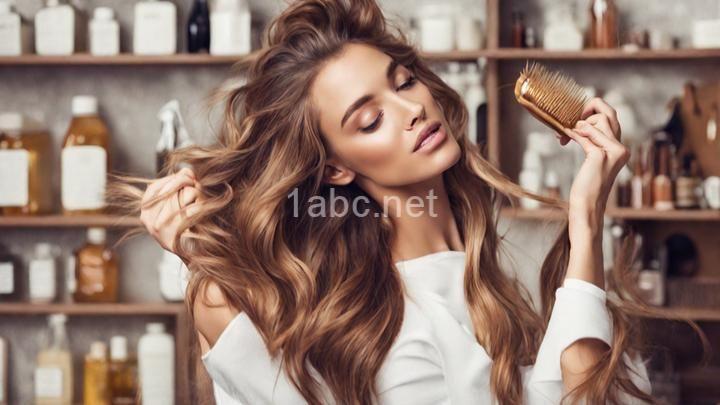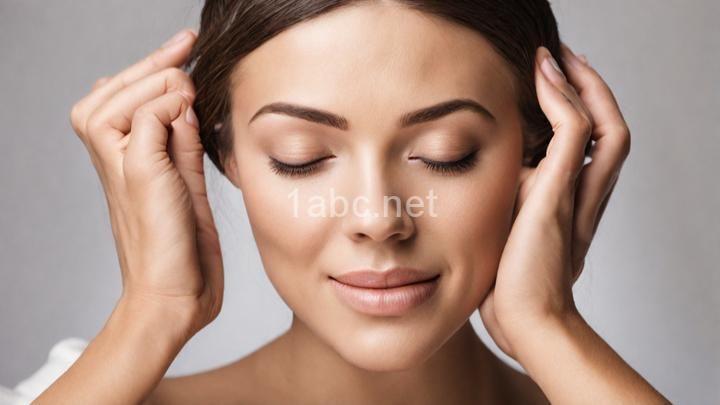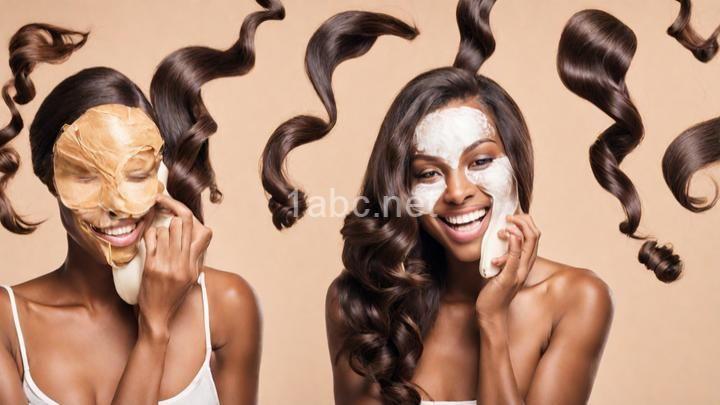Incorporating Self-Care into Your Hair Care Routine: Relaxation Techniques for Healthy Hair

Guideline:
Introduction:
Welcome readers to this comprehensive guide on incorporating self-care into your hair care routine. In today's fast-paced world, it's important to prioritize self-care, and this includes taking care of our hair. This blog post will explore the connection between relaxation techniques and healthy hair, as well as provide tips and step-by-step instructions on incorporating these techniques into your routine.
Understanding the Connection between Relaxation and Healthy Hair:
Stress has a significant impact on our overall health, including the health of our hair. When we are stressed, our bodies produce cortisol, a hormone that can lead to hair loss, thinning, and breakage. Relaxation techniques help to counteract the effects of stress by promoting a state of calmness and reducing cortisol levels. By incorporating relaxation techniques into your hair care routine, you can promote healthier, stronger hair.
Identifying Effective Relaxation Techniques for Hair Care:
A. Deep Breathing Exercises:
Deep breathing is a simple yet powerful relaxation technique that can be done anywhere, anytime. It helps to activate the body's relaxation response, reducing stress and promoting a sense of calmness. To perform deep breathing exercises, follow these steps:
- Find a quiet and comfortable space.
- Sit or lie down, with your eyes closed.
- Take a deep breath in through your nose, allowing your abdomen to expand.
- Slowly exhale through your mouth, emptying your lungs completely.
- Repeat this process for several minutes, focusing on your breath and letting go of any tension.
B. Scalp Massage:
Scalp massage not only feels great but also has numerous benefits for hair health. It helps to increase blood circulation to the hair follicles, promoting hair growth and nourishment. There are various techniques and tools you can use for scalp massage, such as:
- Finger Massage: Using your fingertips, gently massage your scalp in circular motions. Start from the front and work your way to the back of your head. Apply light pressure and focus on areas that feel tense or tight.
- Scalp Massager: A scalp massager is a handheld device designed to stimulate the scalp. Simply glide the massager over your scalp in circular motions, paying extra attention to areas that need relief.
C. Meditation and Mindfulness:
Meditation and mindfulness are practices that help to quiet the mind and bring awareness to the present moment. They can be particularly beneficial for reducing stress and promoting relaxation. Here are some simple meditation practices suitable for beginners:
- Guided Meditation: Use a meditation app or find guided meditation videos online to help you get started. Follow the instructions and allow yourself to be fully present in the moment.
- Mindful Breathing: Similar to deep breathing exercises, mindful breathing involves focusing your attention on your breath. Pay attention to the sensation of the breath entering and leaving your body, letting go of any thoughts or distractions.
D. Aromatherapy:
Aromatherapy involves the use of essential oils to promote relaxation and well-being. Certain essential oils are known for their calming properties and can be incorporated into your hair care routine. Some essential oils beneficial for relaxation and hair care include lavender, rosemary, and peppermint. Here are some recommendations for incorporating aromatherapy:
- Add a few drops of essential oil to your shampoo or conditioner.
- Create a DIY hair mist by mixing water and a few drops of essential oil in a spray bottle. Spritz onto your hair before brushing or styling.
Incorporating Relaxation Techniques into Your Hair Care Routine:
A. Creating a Calming Environment:
To fully benefit from relaxation techniques, it's important to create a calming environment for your hair care routine. Here are some tips:
- Find a quiet and clutter-free space where you can relax and focus on your self-care.
- Use soft lighting or candles to create a soothing atmosphere.
- Play soothing background music or sounds like nature sounds or instrumental music to enhance relaxation.
B. Combining Relaxation Techniques with Hair Treatments:
Enhance the effectiveness of relaxation techniques by combining them with hair treatments. For example:
- Before applying an oil treatment or hair mask, perform a scalp massage to increase blood circulation and promote absorption of the treatment.
- Add a few drops of essential oil to your shampoo or conditioner and enjoy the aromatherapy benefits while washing your hair.
Additional Tips and Tricks for Healthy Hair through Self-Care and Relaxation:
A. Regular Exercise: Engaging in regular exercise not only improves overall health but also promotes blood circulation, which is crucial for healthy hair growth.
B. Balanced Nutrition: A well-balanced diet rich in vitamins, minerals, and nutrients is essential for healthy hair. Incorporate foods such as fruits, vegetables, lean proteins, and healthy fats into your diet.
C. Quality Sleep and Stress Management: Getting enough restful sleep and practicing stress management techniques, such as yoga or journaling, can significantly improve hair health.
Conclusion:
Incorporating self-care and relaxation techniques into your hair care routine is essential for maintaining healthy and beautiful hair. By understanding the connection between relaxation and hair health, identifying effective techniques, and incorporating them into your routine, you can not only have healthier hair but also promote overall well-being. Remember to prioritize self-care and indulge in relaxation to nurture your hair from the inside out.
FREQUENTLY ASKED QUESTIONS
What is self-care and why is it important for hair care?
Self-care refers to intentionally taking care of oneself physically, emotionally, mentally, and spiritually. It encompasses activities or practices that promote one's overall well-being and can include various aspects of life such as physical health, grooming, relaxation, and stress management.
When it comes to hair care, self-care plays a crucial role in maintaining healthy hair. Regular self-care practices contribute to the overall health of the hair and scalp. Here are some reasons why self-care is important for hair care:
- Hair and Scalp Health: Self-care routines like regularly washing and conditioning your hair help in keeping the scalp clean, removing dirt, excess oil, and product buildup. A clean scalp promotes better hair growth and reduces the chances of issues like dandruff or scalp infections.
- Nourishment and Hydration: Self-care involves using appropriate hair care products and treatments that provide nourishment and hydration to the hair strands. This helps in preventing dryness, breakage, and frizz, resulting in healthier and shinier hair.
- Stress Management: Taking care of your hair can be a stress-relieving activity. Massaging the scalp, using essential oils, or engaging in hair care rituals can help reduce stress and promote relaxation, which indirectly contributes to hair health.
- Self-Confidence: Good hair care practices can boost self-confidence and improve self-image. When you take care of your hair, it tends to look and feel better, making you feel more confident and comfortable in your appearance.
Overall, self-care in hair care is important as it allows you to prioritize your well-being, maintain hair health, and enhance your overall look. It is not just about the physical aspects but also about taking time for yourself, promoting relaxation, and boosting self-esteem.
How can self-care techniques benefit my hair?
Self-care techniques can have several benefits for your hair. Here are a few ways:
- Nourishment: Self-care techniques like applying hair masks or deep conditioning treatments can provide nourishment to your hair, making it healthier, stronger, and more resilient.
- Hydration: Proper hydration is crucial for maintaining healthy hair. Drinking an adequate amount of water and using hydrating hair products can help retain moisture in your hair, reducing dryness and breakage.
- Scalp health: Self-care techniques such as scalp massage or using natural oils can improve the health of your scalp. A healthy scalp promotes hair growth and helps prevent issues like dandruff or an itchy scalp.
- Stress reduction: Engaging in self-care activities like meditation or taking time for yourself can help reduce stress levels. High-stress levels can contribute to hair problems like hair loss or dullness, so managing stress can benefit the overall health of your hair.
- Damage prevention: By practicing self-care techniques like using heat protectants or avoiding excessive heat styling, you can prevent damage to your hair. This includes reducing the risk of split ends, breakage, and brittleness.
Remember, self-care for your hair should also include a well-balanced diet, regular exercise, and avoiding harsh chemical treatments.
What are some relaxation techniques that I can incorporate into my hair care routine?
Incorporating relaxation techniques into your hair care routine can help to promote overall well-being and reduce stress. Here are a few techniques you can try:
- Scalp massage: Gently massage your scalp using your fingertips in circular motions. This can help stimulate blood flow and promote relaxation.
- Deep breathing: Take slow, deep breaths while performing your hair care routine. Deep breathing can help reduce stress and promote relaxation.
- Aromatherapy: Use essential oils such as lavender or chamomile during your hair care routine. These oils have calming properties that can help induce relaxation.
- Meditation: Practice mindfulness or meditation techniques while caring for your hair. Focus on the present moment and allow your mind to relax.
Remember, everyone's needs and preferences vary, so feel free to choose the techniques that work best for you.
How often should I practice these relaxation techniques?
It is generally recommended to practice relaxation techniques regularly in order to experience their benefits. The frequency of practice varies depending on individual preferences and needs. Some people find it helpful to practice daily, while others may choose to practice a few times a week. Find a routine that works for you and consider integrating relaxation techniques into your daily self-care routine to promote overall well-being and manage stress effectively.




